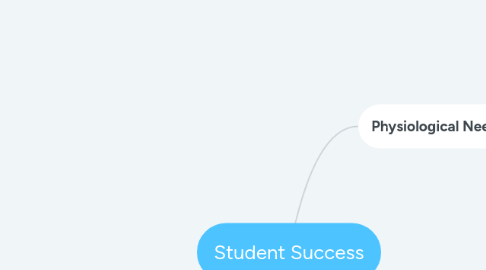
1. Physiological Needs
1.1. Nutrition
1.1.1. Malnutrition & Food Scarcity vs Overweight & Obesity
1.1.1.1. Poverty Influences
1.1.1.2. Students need amino acids, chlorine, protein, carbohydrates, vitamins, omega-3 fatty acids
1.2. Sleep
1.2.1. Sleep-Dependent Memory Consolidation Theory
1.2.1.1. Brain functions that take place during sleep consolidate memories and learning. In the absence of adequate amounts of sleep, learning and memory consolidation are interrupted.
1.2.1.1.1. Educators need to consider, assess, and address to the best of their abilities, how well students' physiological needs are being met in their daily lives. Assessments of sleep, nutrition, and exercise should be encouraged for all students but are imperative for students who struggle with literacy learning.
1.3. Exercise:Physical and Emotional Health
1.3.1. Improved Grades
1.3.2. Standardized Test Achievement
1.3.3. Cognitive Control, also referred to as 'executive control': The ability to guide behavior toward specific goals and formulate decisions
1.3.4. Increased Memory
1.3.5. Altered Brain Structure
1.3.6. Brain Function: Fit children are able to direct increased amounts of attention to specific cognitive tasks.
2. Theory & Evidence: Physiological Grounding of Cognitive Growth
2.1. Maslow's Hierarchy of Needs
2.1.1. Physiological, Safety, Love/Belonging, Esteem, & Self-actualization
2.2. Evolution of the Triune Brain
2.2.1. Three-part model of the brain: Reptilian (survival), Limbic system (Emotions & short-term memory), and Neocortex (Intellect, decision making, and higher reasoning)
